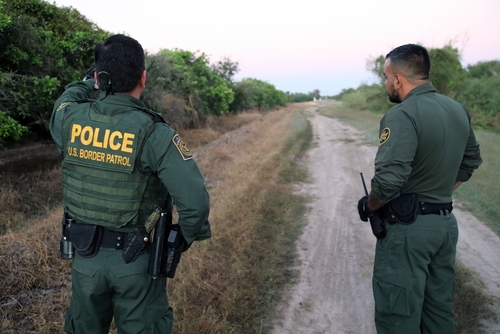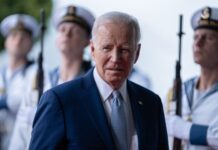
In a recent incident that has sparked widespread concern and debate, a Texas National Guard member was arrested for allegedly smuggling an undocumented immigrant across the southern border in a government-issued vehicle This event not only underscores the ongoing challenges of securing the U.S. border but also raises questions about the integrity of the forces tasked with this mission.
Specialist Savion Johnson, deployed under Governor Greg Abbott’s Operation Lone Star State, was caught following a high-speed chase initiated after suspicious activities near a Border Patrol checkpoint were reported. Johnson faces charges of evading arrest, smuggling of persons, and unlawful carry of a weapon, highlighting the serious legal implications of such actions.
While deployed to Eagle Pass to PROTECT OUR BORDER, Texas National Guard soldier Savion Johnson, (31) used his Gov vehicle to smuggle an illegal across our border for $5K!
Dashcam shows his arrest.
WORST OF THE WORST TRAITOR! pic.twitter.com/8NEJDiOJgD
— 🇺🇸ProudArmyBrat (@leslibless) April 4, 2024
The arrest took place in Bracketville, after a pursuit that reached speeds of over 100 mph, indicating the lengths to which individuals might go to evade law enforcement. It was reported that Johnson had accepted $6,000 to smuggle the illegal alien, suggesting a financial motive behind the act. This incident brings to light the potential vulnerabilities within the National Guard and the possibility of cartel infiltration, a concern that has been echoed by commentators and analysts alike.
Critics argue that if smuggling one illegal immigrant constitutes treason and criminal behavior, then facilitating the entry of millions into the country should be viewed through a similar lens. This perspective points to broader issues of policy and enforcement at the national level, with some calling for the arrest of high-ranking officials they believe are responsible for a perceived open borders policy.
⚠️ JUST ANNOUNCED ⚠️ Texas National Guard RETAKES the border in El Paso, Texas DEFYING federal Judge and government’s requests. A razor wire wall is now being constructed to stop the flow of ILLEGAL migrants.
A razor wire wall is now being constructed to stop the flow of ILLEGAL… pic.twitter.com/wda8ZYsntz
— FOX NIIGHT (@FOXNIIGHTGALAXY) April 2, 2024
The reaction to Johnson's arrest has been mixed, with some expressing shock and disappointment that a member of the National Guard would engage in such activities, while others see it as indicative of larger systemic issues. The incident has reignited debates over immigration policy, border security, and the role of the military in enforcing domestic laws.
Governor Abbott's spokesperson labeled Johnson a "traitor and criminal" if the allegations prove true, reflecting the gravity with which this case is being treated. Meanwhile, discussions continue about the appropriate punishment for such offenses, with historical precedents suggesting severe penalties for acts deemed treasonous.
This case serves as a stark reminder of the complexities surrounding border security and immigration enforcement in the United States. As the nation grapples with these issues, the arrest of Specialist Johnson highlights the need for vigilance, integrity, and comprehensive policy solutions to address the challenges at the border.











